One of the big fears in the entertainment industry today is that generative AI like ChatGPT will soon replace human talent and produce mediocre stories. Well, if Netflix’s newest AI-themed sci-fi flick, Atlas, is any indication, we have little to fear as some human writers are already writing those sorts of godawful stories. Heck, ChatGPT might’ve even done a better job here.
In Atlas, Jennifer Lopez plays agent Atlas Shepard, the world’s top expert in AI counter-terrorism. Decades ago, Atlas’s mother engineered an AI named Harland, who eventually overthrew his programming, killed his creator in front of her daughter, and led the world’s machines in a Skynet-style uprising. Harland then left Earth to set up shop elsewhere.
After Harland’s betrayal, Atlas is deeply distrustful of all machines (although not enough to stop playing virtual chess with her home computer). She volunteers to guide a team of Rangers on a mission to Harland’s planet to capture the rogue AI, but before their ship can make planetfall, Harland’s defenses blow them out of the sky. To survive the crash, Atlas is forced into a mech suit.
Although the mech is powerful, it will only work properly if she willingly neuro-syncs with its AI system, Smith. At first, Atlas refuses to mind-meld with Smith, but with time running out for them to reach the rescue point, she must overcome her prejudices. And wouldn’t you know it, the pair eventually discover that together, humans and machines can achieve great things.
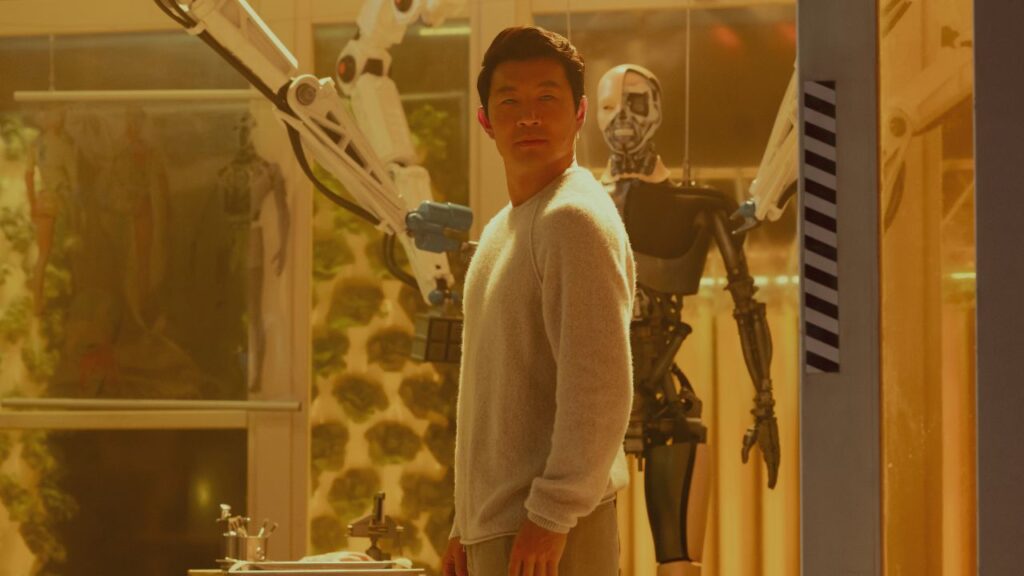
Atlas is basically a buddy movie starring JLo and the disembodied voice of Gregory Cohan, as Smith, inside a giant Transformer, traversing an unexplored planet. And that’s the best part. The movie shines when it focuses on the dynamic duo learning from one another. Smith picks up cussing, while Atlas grows comfortable opening up to Smith in ways she never has with another human being.
While Atlas and Smith have decent character development and moderately charming interactions, Harland (played by Simu Liu) is so shallowly written that it’s hard to see him as a chilling mastermind who engineered the AI apocalypse. Even the Rangers’ shipboard coffeemaker has more personality than Harland. Liu does his best, but he seems to have gone from Asian Ken to a dollar-store Terminator.
Another thing that weakens the film is how quickly problems are resolved. As soon as a crisis arises, Atlas and Smith fix it. Atlas breaks a bone, Smith patches her up right away. They fall down a sinkhole, and after some heart-to-heart, they promptly find the exit and go on their merry way. Nothing feels earned when the stakes and tension are so effortlessly removed.
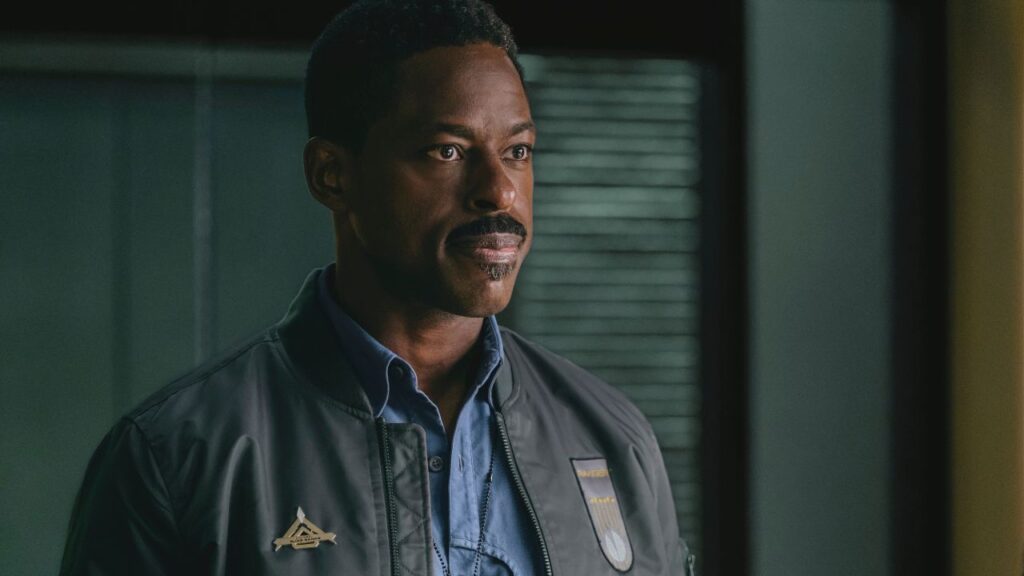
The effects in Atlas are another sticking point. They’re not bad, per se, but they’re not stellar either. There’s really no excuse when a series like Lost in Space, another Netflix production, routinely has breathtaking visuals of outer space and alien planets in every episode, yet a movie that’s star-studded with the likes of JLo, Simu Liu, Sterling K. Brown, and Mark Strong, looks like it was designed by third-year graphics students.
Nowhere are the lazy effects more glaring than in the flora of Harland’s planet. Smith tells Atlas that as the first human to discover a new flower species, she gets to name them. Symptomatic of the script’s poor writing, the best name Atlas, a brilliant analyst, can come up with is “planty.” The lame name suits the spiky red flower, though, which the effects team somehow designed to look like a model of COVID-19.
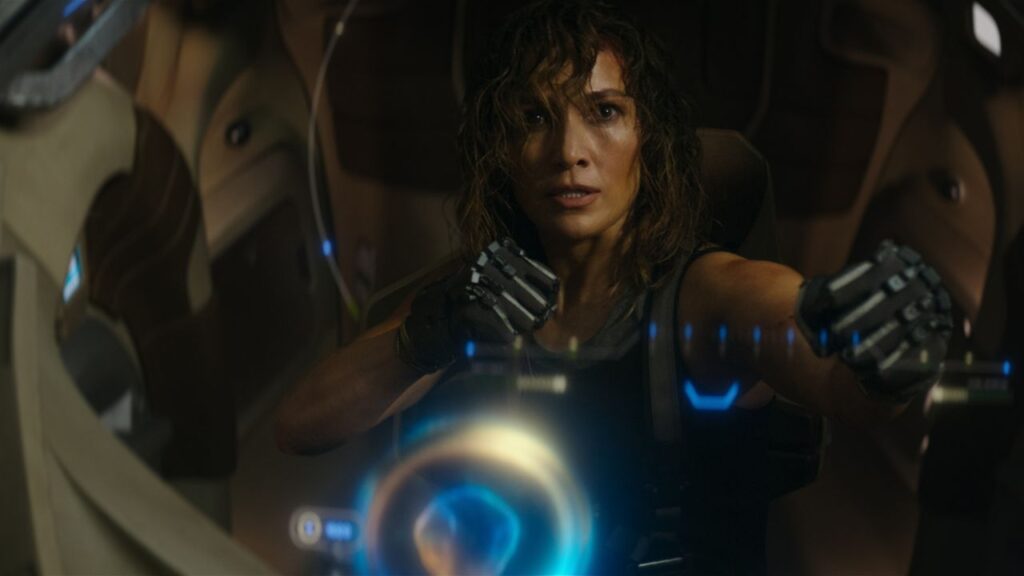
The emotional crux of the movie is Atlas’ fear of AI threatening human society. A very real fear that seems to be permeating throughout every aspect of our society. Just look at 2023’s Writers Strike. One of the key priorities of the strike was to establish guardrails against generative AI creating scripts from human writers’ ideas, but without any originality or creativity. Unfortunately, as a film, Atlas has done exactly that.
Atlas feels like an amalgamation of many movies but with none of the qualities that made them great. The neuro-sync concept is shamelessly pinched from Pacific Rim, but without the in-depth character psychology. JLo is basically cosplaying Sigourney Weaver in a mech, but without any of Ripley’s badassery. And haven’t both Jaden Smith and Adam Driver – in separate movies – already crash-landed on a planet they then had to trek across to survive?
Harland may represent the threat AI poses to humanity, but artificial intelligence isn’t the problem here. The real problem is that a bunch of human writers, producers, and executives somehow created and approved of Atlas, a movie of such spectacular superficial intelligence.

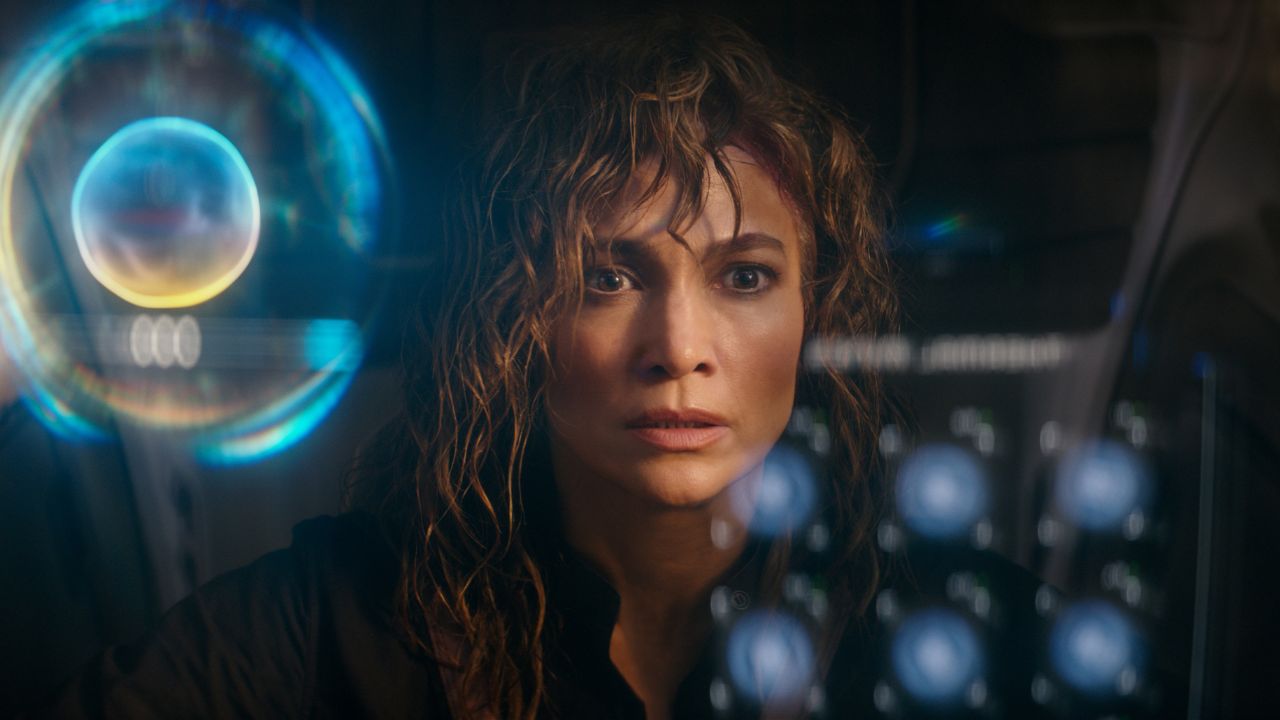
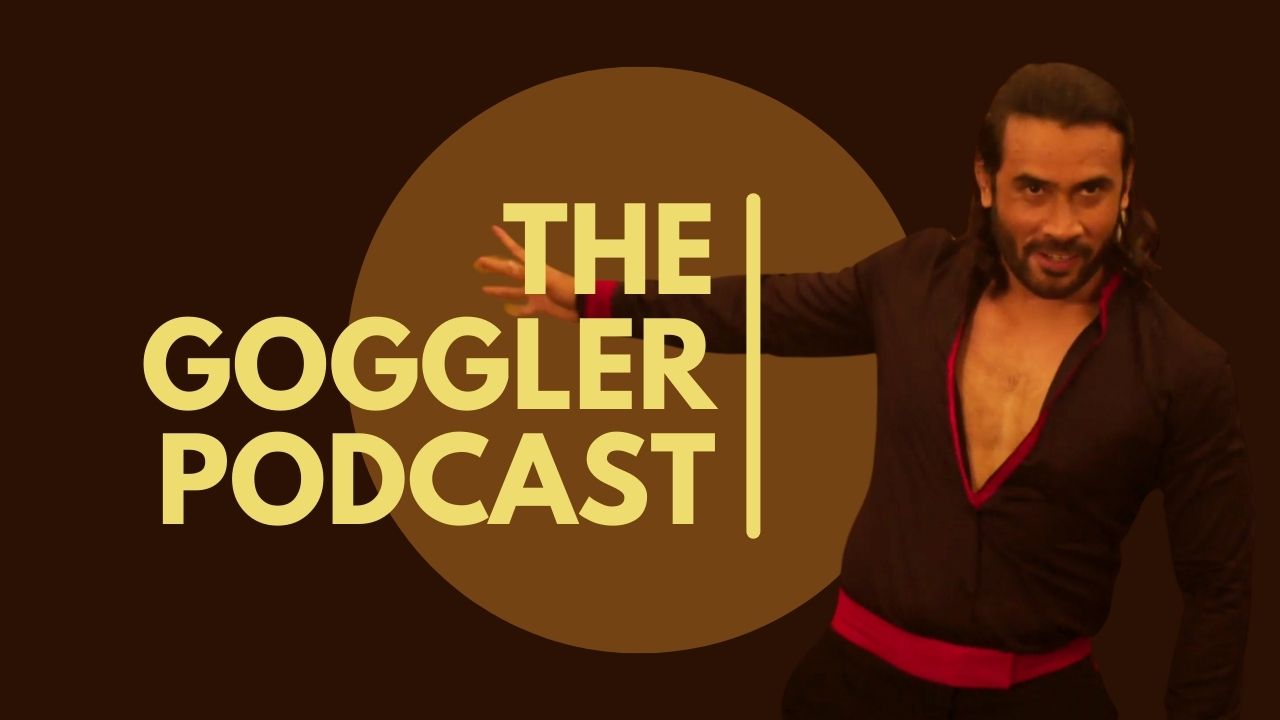
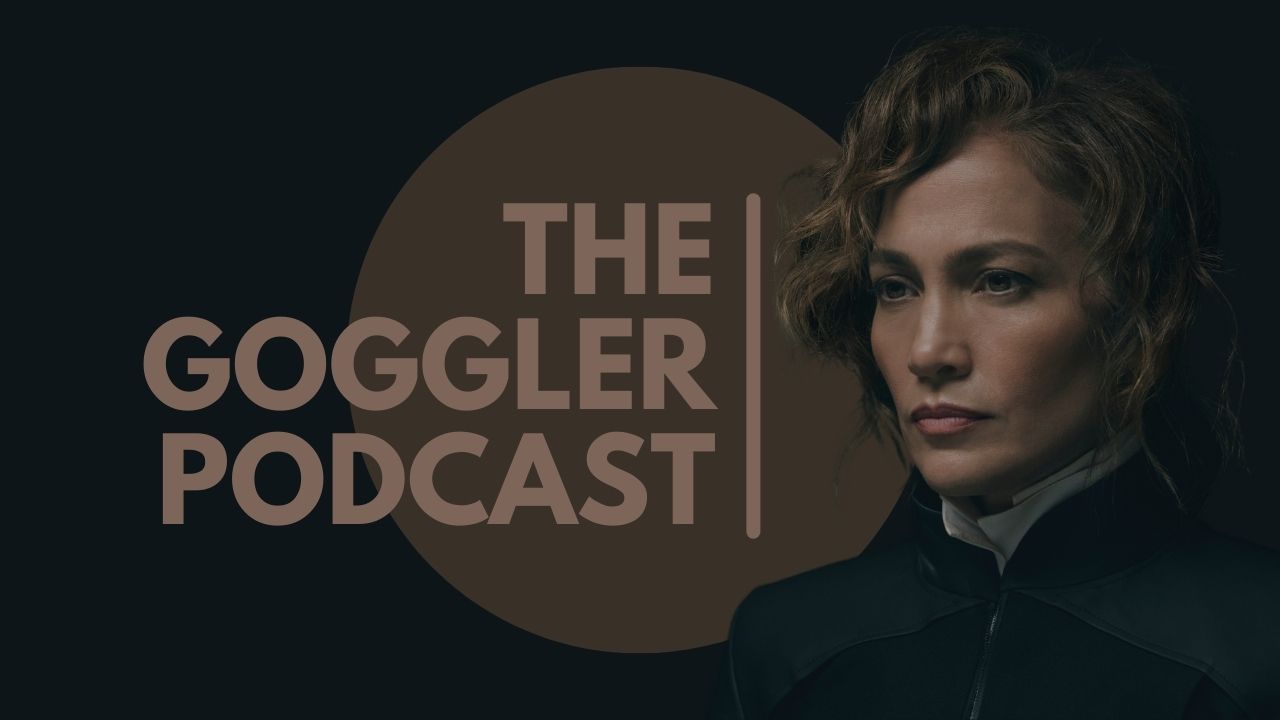
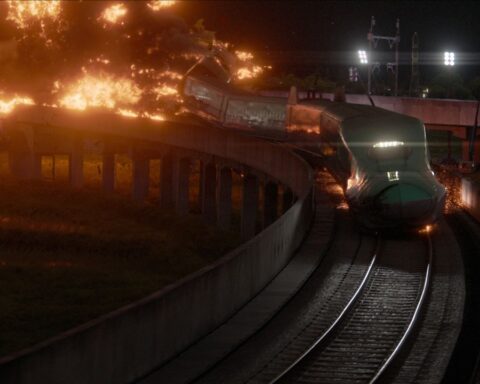
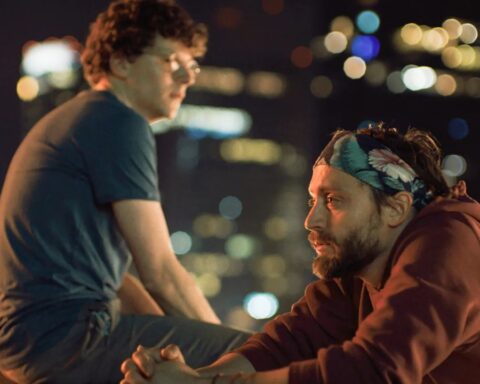
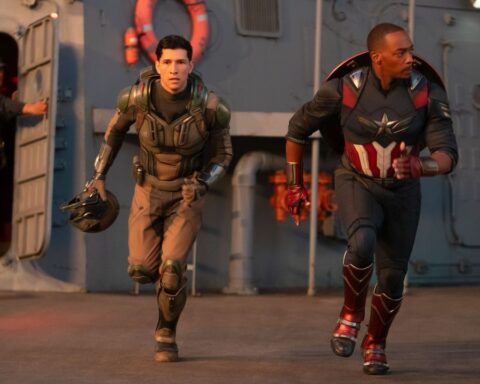
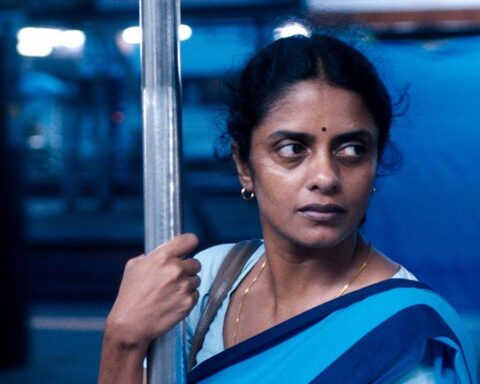
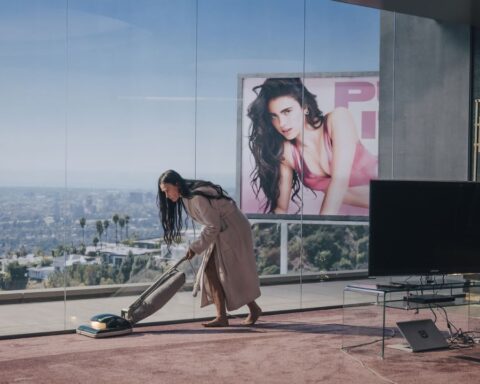
Follow Us